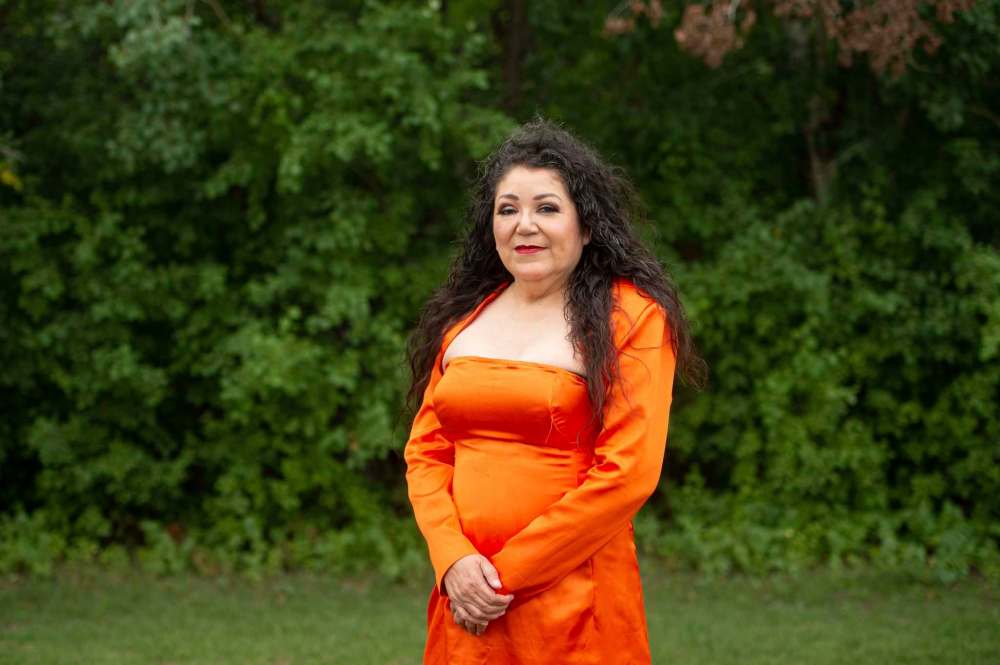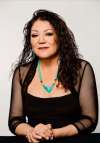Finding her voice Cree singer Rhonda Head stumbled into classical music… and then she made it her own
Read this article for free:
or
Already have an account? Log in here »
To continue reading, please subscribe:
Monthly Digital Subscription
$0 for the first 4 weeks*
- Enjoy unlimited reading on winnipegfreepress.com
- Read the E-Edition, our digital replica newspaper
- Access News Break, our award-winning app
- Play interactive puzzles
*No charge for 4 weeks then price increases to the regular rate of $19.00 plus GST every four weeks. Offer available to new and qualified returning subscribers only. Cancel any time.
Monthly Digital Subscription
$4.75/week*
- Enjoy unlimited reading on winnipegfreepress.com
- Read the E-Edition, our digital replica newspaper
- Access News Break, our award-winning app
- Play interactive puzzles
*Billed as $19 plus GST every four weeks. Cancel any time.
To continue reading, please subscribe:
Add Free Press access to your Brandon Sun subscription for only an additional
$1 for the first 4 weeks*
*Your next subscription payment will increase by $1.00 and you will be charged $16.99 plus GST for four weeks. After four weeks, your payment will increase to $23.99 plus GST every four weeks.
Read unlimited articles for free today:
or
Already have an account? Log in here »
Hey there, time traveller!
This article was published 01/09/2021 (1558 days ago), so information in it may no longer be current.
Singer Rhonda Head has travelled a long and winding road to get her voice heard.
Her classically trained vocals have received worldwide recognition after she received two bronze medals from the Global Music Awards, an online competition that specializes in classical and jazz artists and composers.
Head, who hails from Opaskwayak Cree Nation, near The Pas, earned the acclaim for two Cree language songs, Kisahkihitin I Love You, which was in the contemporary classical category, and 500 Years, which received honours among protest songs.
She began taking singing lessons in 1987, after she graduated from high school at the University of Winnipeg Collegiate and moved to Toronto to study fashion. She found, almost by chance, that singing suited her better.
“When people ask me how I got into classical music, I usually say classical music found me, because I didn’t go looking for it,” Head says.
“At the time, Toronto’s phone book was huge. I looked in the music section and there was an inch (of pages) of music teachers. I said, ‘Oh my goodness, how am I going to find a teacher?’ So I went to half of that inch, closed my eyes and put my finger on a name and that’s the person I called.
“When I got there, this beautiful man that looked like Warren Beatty opened the door. I almost ran away he was so handsome.”

She learned about opera, and how to sing in the operatic languages such as Italian, Latin, German and English. It wasn’t long before she realized she needed to sing in her native language, Cree, and when she made her first public performance, that was the language she chose.
“I didn’t start singing in front of a crowd till 2000 at an Opaskwayak Cree Nation Blizzard hockey game, and I sang the national anthem in Cree,” Head says. “It was really nerve-racking but I did it and I had huge applause and that was it for me. I liked music and I’m going to continue to sing in public.”
Since then, she’s been able to create a bridge between Indigenous and European music, singing Cree language interpretations of classical standards, such as Ave Maria, and using her classical training to re-imagine Cree hymns and traditional songs.
“When I was studying the songs in Italian and French and Latin, I kind of put the brakes on,” she says. “I needed to start singing in my own language. I’m learning all these different languages but not my own.
“I started experimenting, putting the Cree language into where the Italian was in an opera aria and I found it fit perfectly… I often say to people that Cree is a language of love.”
The Cree word kisahkihitin, from the title of the first of Head’s award-winners, means “I love you” when translated into English.
She recorded her parts in Winnipeg and the Prague Orchestra, part of a music recording program called Musiversal, laid down the strings and horns that Head was able to watch via the Zoom video-conferencing app.
Her second award-winning song, 500 Years, also with the Prague Orchestra, is about remembrance and empathy, and focuses on Canada’s residential school history and how it affected her family.
Her mother was taken from her family and sent to a residential school; when she returned home she was unable to leave the memories of abuse she endured behind, Head says.
“They were just treated horribly. When they came home they were so traumatized. They started having their own families and children and because of what happened to them in residential school, that’s how we were treated,” Head says, describing a condition called inter-generational trauma.
“I understood why she was the way she was at that moment when she shared some of her experiences at residential school.”
Traumatic memories like this hit home for all Canadians this summer after ground-penetrating radar discovered hundreds of unmarked graves of children at former school sites across the country.
“I think about all the children that never made it home and the families that were waiting for them,” she says.
Fall Fair Friday
Indigenous performers highlight the three music stages at the Fall Fair on Friday, which have performances running from noon to midnight.
Country Stage: Jesse Bandura, Band of Brotherz, Gator Beaulieu, Martin Desjarlais, Lucien Spence, Brandi Vesna, Chokmah, Darren Lavalee, Catie St. Germain, Clint & Riley Dutiaume Band, Desiree Dorion and Jerry Sereda
Rock Stage: Kristen McKay, the Resilience, Shades of Dawn, the Black Saddle Band, Joe Maxim, Loretta Johnston N the Mixxx, Crackin Foxy, Rescued by Dragonflyz and Billy Joe Green
Red Barn Stage: Ivan Flett Memorial dancers with Ryan Richard and Felicia Morriseau; Inuit throat singer Zeann Manernaluk; Double the Trouble; Rhonda Head; the Mosquitoz 2.0; Ojibway Elvis; Tracy Bone; Kimberley Dawn; Eagle & Hawk; Keewatin Breeze and the C-Weed Band
Head, who lives in The Pas, has been in Winnipeg for the past week performing before audiences again, including appearnaces at the Sakihiwe Festival and opening a new performance area at Assiniboine Park.
On Friday, she performs at the Fall Fair, the stand-in carnival for the postponed Red River Ex. Her performance at the Red Barn Stage is part of an all-Indigenous lineup that includes Métis fiddlers Double the Trouble and rock groups Eagle and Hawk and the C-Weed Band
She’s had to learn lessons about the music industry from scratch. Despite her music being different to many other Indigenous artists, she has become a mentor and has worked with the Manitoba Arts Network, helping with young Indigenous performers.
“I’m known as Auntie Rhonda in the music business because I freely share my knowledge in the music industry because of what I went through,” she says. “It’s really rewarding for me to see them doing well because when I was an emerging artist, no one was there for me. I did it all on my own.”
alan.small@freepress.mb.ca
Twitter:@AlanDSmall

Alan Small has been a journalist at the Free Press for more than 22 years in a variety of roles, the latest being a reporter in the Arts and Life section.
Our newsroom depends on a growing audience of readers to power our journalism. If you are not a paid reader, please consider becoming a subscriber.
Our newsroom depends on its audience of readers to power our journalism. Thank you for your support.




